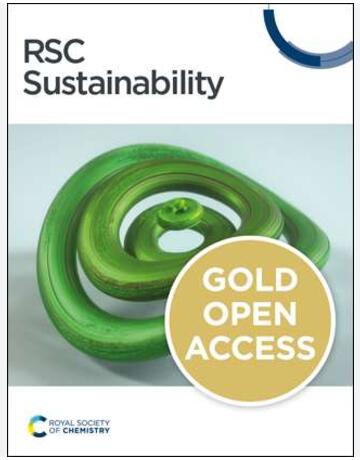家庭的未来取向和价值观对其安装太阳能光伏系统意愿的影响
IF 3.3
3区 环境科学与生态学
Q2 ENVIRONMENTAL SCIENCES
引用次数: 0
摘要
太阳能作为一种可减少温室气体排放的可再生能源,越来越受到人们的欢迎。尽管许多国家的政府通过各种激励措施推广太阳能,但太阳能在家庭中的应用率却很低。尽管社会和经济因素非常重要,但心理因素在太阳能应用中却相对被忽视。因此,本研究旨在探讨心理决定因素如何影响家庭安装太阳能光伏(PV)系统的意愿。本研究重点关注家庭的未来取向和个人价值观(生物圈价值观、利他价值观和利己价值观)及其安装太阳能光伏系统的意愿。研究借鉴了三种环境心理学理论:价值取向理论、价值信念和规范理论以及计划行为理论,构建了一个综合理论模型。在澳大利亚进行了一项涉及 179 名受访者的调查,并采用 PLS-SEM 技术进行了分析。调查结果显示,未来取向和价值观是家庭安装太阳能光伏系统意愿的重要预测因素。此外,研究结果表明,态度和感知行为控制在安装太阳能系统中起着重要作用。研究结果将有助于政策制定者和太阳能公司制定有利可图的政策和营销策略,在家庭中推广太阳能光伏系统。本文章由计算机程序翻译,如有差异,请以英文原文为准。
Impact of Households’ Future Orientation and Values on Their Willingness to Install Solar Photovoltaic Systems
Solar energy is increasing in popularity as a renewable energy source, which reduces greenhouse gas emissions. Even though many governments promote solar energy by giving various incentives, its adoption rate in households is slow. Psychological factors have been relatively overlooked in solar adoption, despite the importance of social and economic factors. Therefore, the purpose of this study is to investigate how psychological determinants impact households’ willingness to install solar photovoltaic (PV) systems. This study focusses on the future orientation and personal values (biospheric, altruistic, and egoistic values) of households’ and their willingness to install solar PV systems. The research draws from three environmental psychology theories: values orientation theory, value beliefs and norms theory, and the theory of planned behaviour to construct an integrative theoretical model. A survey involving 179 respondents in Australia was conducted and analysed applying the PLS-SEM technique. Findings revealed that future orientation and values are significant predictors of household willingness to install solar PV systems. Further, findings showed that attitude and perceived behavioural control play a significant role in installing solar. The findings will assist policymakers and solar companies in developing lucrative policies and marketing strategies to promote solar PV systems among households.
求助全文
通过发布文献求助,成功后即可免费获取论文全文。
去求助
来源期刊

Sustainability
ENVIRONMENTAL SCIENCES-ENVIRONMENTAL SCIENCES
CiteScore
6.80
自引率
20.50%
发文量
14120
审稿时长
17.72 days
期刊介绍:
Sustainability (ISSN 2071-1050) is an international and cross-disciplinary scholarly, open access journal of environmental, cultural, economic and social sustainability of human beings, which provides an advanced forum for studies related to sustainability and sustainable development. It publishes reviews, regular research papers, communications and short notes, and there is no restriction on the length of the papers. Our aim is to encourage scientists to publish their experimental and theoretical research relating to natural sciences, social sciences and humanities in as much detail as possible in order to promote scientific predictions and impact assessments of global change and development. Full experimental and methodical details must be provided so that the results can be reproduced.
 求助内容:
求助内容: 应助结果提醒方式:
应助结果提醒方式:


